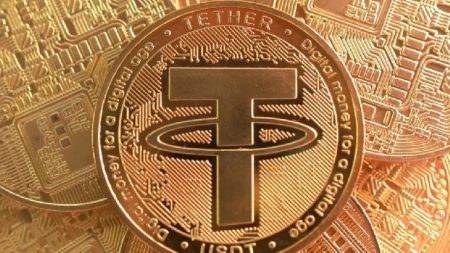The Czech National Bank (CNB) is exploring the possibility of adding Bitcoin to its reserve holdings, a move that reflects the growing global recognition of the cryptocurrency’s potential as a store of value and diversification asset. CNB Governor Aleš Michl has indicated his interest in acquiring a small amount of Bitcoin, although the proposal requires the approval of the entire seven-member board. While the idea has been discussed, the CNB is not actively pursuing Bitcoin diversification at this time. This consideration comes as the central bank is also working to increase its gold reserves, highlighting a broader strategy of diversifying its assets across different classes and currencies. The CNB’s exploration of Bitcoin aligns with a wider trend of countries and corporations increasingly considering or adopting cryptocurrencies.
The shift in perception surrounding Bitcoin has been significantly influenced by the stance of US President-elect Donald Trump. His endorsement of Bitcoin as a currency of the future, coupled with the suggestion of establishing a US national stockpile, has contributed to increased confidence in the digital asset. While Trump has not committed to purchasing additional Bitcoin, his acknowledgement of its importance has resonated within the financial world. This growing acceptance is further evidenced by the actions of other countries like Russia, Switzerland, and Brazil, which are also exploring the potential of Bitcoin as a reserve currency. Senator Cynthia Lummis’s proposed Bitcoin Act in the US, aimed at acquiring a substantial stake in Bitcoin for the country, further underscores this growing trend.
The proposed Bitcoin Act, which aims to purchase one million Bitcoins for the US, has sparked debate. While proponents argue for the strategic importance of holding a significant portion of the limited Bitcoin supply, critics like former US Treasury Secretary Larry Summers view it as pandering to special interests. However, Summers also acknowledges the potential for overregulation in the crypto space. This tension highlights the evolving understanding and ongoing discussions surrounding the role of cryptocurrencies in national and global economies. The involvement of prominent figures like President Trump and the introduction of legislation like the Bitcoin Act further amplify the conversation and contribute to the mainstreaming of Bitcoin.
Market analysts, such as Anthony Scaramucci, predict that China will soon join the growing number of countries embracing cryptocurrencies. This anticipated entry of a major global player further reinforces the increasing acceptance and integration of digital assets into the international financial system. China’s potential involvement could have significant implications for the cryptocurrency market and its overall trajectory. Its participation would likely further legitimize the space and accelerate the adoption of digital currencies by other nations and institutions.
Bitcoin’s recent surge to an all-time high of $108,000 reflects its growing credibility and acceptance. While the asset experienced a subsequent correction, its quick recovery and return to six figures underscores its resilience and the continued strong interest from investors. This price performance, coupled with increasing institutional adoption and favorable pronouncements from influential figures, contributes to the narrative of Bitcoin as a viable and potentially valuable asset class. The ongoing price volatility, however, remains a key consideration for investors and policymakers alike.
The increasing interest in Bitcoin and other cryptocurrencies by governments and corporations marks a significant shift in the financial landscape. While challenges and uncertainties remain, the exploration of digital assets as reserve currencies and investment vehicles represents a growing acknowledgment of their potential role in the future of finance. The discussions and debates surrounding regulation, adoption, and the long-term implications of cryptocurrencies are likely to continue as the space matures and evolves. The interplay between governments, financial institutions, and the crypto community will shape the future trajectory of this rapidly changing landscape.















